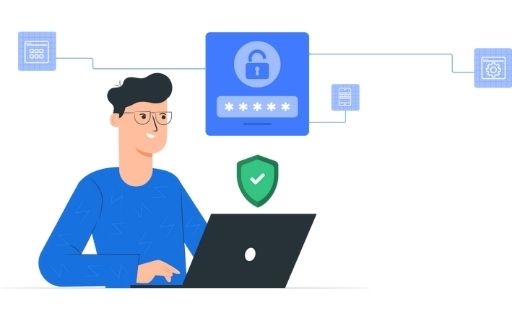If you hear the term SSO in an IT setting, it probably means single sign-on. Single-sign on can be a very efficient, safe system to implement. It makes sense that businesses like it and that many of them use it, regardless of the industry in which they operate.
In this article, we will talk about single sign-on, including what the term means and why many companies go in this direction. In the end, you might choose to start using it if you run a business.
Recommended: How to Password Protect a Folder on Windows 10

Contents
What Exactly Does SSO Mean?
Before we talk about how to choose a single sign-on solution for your business, we should explain what it is and how it works. Single sign-on, or SSO, as some tech specialists abbreviate it, is a kind of authentication scheme. A user logs into several related yet independent software suites or systems using one ID and password.
A single sign-on system will allow the user to log in just once. Then, they can access services without having to reenter their authentication factors.
Why Do Businesses Utilize Single Sign-On Solutions So Much?
If you stop to think about how a business operates, it’s not hard to see why single sign-on would make sense. Many companies these days have software they use. Lots of their employees have to interact with it every day, either from home or from a centralized location, like an office building.
These workers must log into this system, which might be an off-the-shelf software suite, or it could be a bespoke one. Either way, the company will want its employees to get to work on their assignments as quickly as possible each day.
Multiple authentications can slow the whole process down. If workers need to keep authenticating their identities, that impedes speedy work. If a company is trying to complete a project by a deadline, the bosses will want to set up single sign-on because it saves time.
Other Single Sign-On Benefits
Single sign-on is a modern technology that many niches have embraced. The companies that use it know that any user can log into their account easily, and they don’t have to juggle many different accounts and passwords. All they have to remember is a single login and password, and they can start their workday.
Businesses can also make sure their workers use a password that’s more difficult to guess. They might use a random password generator to ensure the worker does not pick a password that’s simple or easy to guess. A random password generator will come up with a string of letters, numbers, and symbols that’s virtually impossible to figure out.
Doing this also ensures that a worker does not recycle a password across several sites or software suites. In this way, it’s easy to see why single sign-on is good for security. This system is all about both safety and advanced compliance.
Are There Any Downsides to Single Sign-On?
You might wonder about single sign-on downsides as well. There are a few notable ones about which you and your workers should know.
A random password generator might produce a very strong password that no one is likely to ever guess, but that means your worker cannot remember it either. Because of this, they will likely need to write the password down somewhere.
That might be a problem if they choose to jot it down on a notepad or sticky note that they leave close to their work computer. If someone unauthorized gets that password, they can log in and create all kinds of problems.
To avoid this, you can recommend that your workers keep their passwords on their smartphones instead. That way, it’s not likely someone can access that password who shouldn’t get it.
SSO is also a system that works very well until it doesn’t. In other words, if the system suddenly goes down for any reason, like a technical glitch, access to all of a company’s connected servers completely halts.
This doesn’t happen often, but not keeping up with your business’s IT needs can sometimes bring about this type of event. If someone breaches your identity provider, that can leave all your linked systems open to an attack as well.
Despite these drawbacks, most companies these days seem to feel like setting up and using single sign-on makes sense versus not using it. You can contrast and compare different systems and set one up for your company that seems to make the most sense for you.
